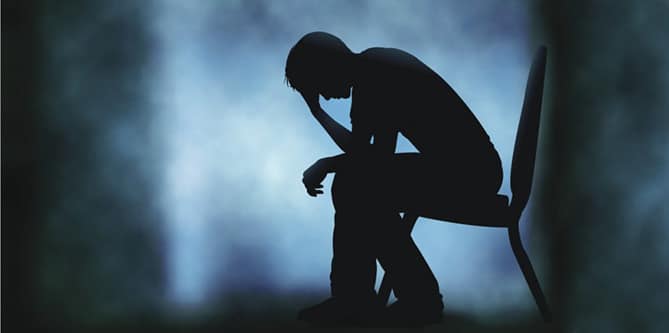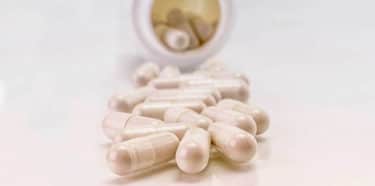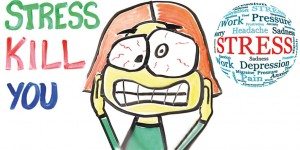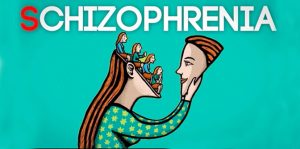Depression is a common but treatable disease. When it is not treated, it may create serious consequences and may cause some other health problems to occur or get worse. Depression can be treated in many different ways. Individuals with depression can feel an excessive pessimism, hopelessness, exhaustion and deep sadness. Fortunately, even the most severe types of depression can be treated efficiently. Individuals should not avoid consulting psychologists; they should be informed about depression and make a decision about treatment. Changing life style, medication, psychological support and psychotherapies are most effective methods for depression treatment. Statistics show that more than 350 million people around the world suffer from depression.
Table of Contents
Causes of depression
- Family and marriage issues
- Childbirth and postpartum in women
- Job related problems or job changes
- Genetic or environmental factors
- Alcohol abuse
- Serious illnesses such as cancer, AIDS, MS, or epilepsy
- Menopause, Andropause and hormonal changes
- Seasonal changes
- Economic problems, debts or bankruptcy
- Loss of loved ones (1)
Symptoms of depression
- Sudden mood changes
- Lack of motivation and difficulty in concentration
- A continuous feeling of sadness and over sensitiveness
- Loss of having pleasure from daily routine or activities
- Being in an unpeaceful mood when thinking about past or future
- Decline in sexual desire
- Over sleeping or sleeplessness
- Feeling physically exhausted continuously
- Suicidal thoughts and attempts

How can depression be treated?
As individuals are affected in different ways by depression, treatment methods also differ. A good method or suggestion for somebody may not be so good for somebody else. It is important that individuals should be aware of their condition and they should make an effort. (2)
Mild depressions can go away by themselves whereas severe ones may require both psychotherapy and medication. The first step should be life style changes in depression treatment. However, if this works for only a short period of time or does not work at all; a psychological support would be needed.
The stages of depression?
As in the other disorders and illnesses, depression has stages, too. Most depressions are temporary in which individuals have it for a short period; and these are mild depressions. Moderate and severe depressions, on the other hand, require a professional support.
You can fix your mild depression by yourself. Your doctor may suggest you some small but effective solutions such as physical exercises, hiking, or having a hobby. With the help of them, you can recover without having need for psychotherapy.
If you have moderate or severe depression, it would be good for you to get a professional help. You can start your treatment by seeing a psychologist or a psychiatrist whom you feel comfortable to talk to. Your therapist will offer solutions after understanding the problem completely.
In severe depression treatment, psychotherapy may not be enough, and individuals may need to use medications. After talking therapy, doctor would prescribe your medications.
Depression treatment without medication
People who have psychotherapy for treatment of depression participate to talking therapy sessions. Having regular sessions with a psychologist is one of the best ways for treatment. Psychologists try to define causes of depression, symptoms and solutions with clients. That people find a psychotherapist whom they can open themselves easily and they continue to sessions are crucial for the sake of therapy. (3)
Information and suggestions given by psychologist help individuals recover. For those who cannot get better with only psychotherapy, a treatment plan with medication is implemented. Medications in this kind of treatment are antidepressants suggested according to the condition of individuals.
Transcranial Magnetic Stimulation (TMS)
Medication treatment is the most common and achievable treatment method for depression. However, TMS is a more comfortable application. TMS is thought to be more effective since it can be useful for patients who cannot get better with medications. TMS applications can be used with medications and psychotherapies.
Medications have important places in treatment plans, and millions of people use them to get better. However, it is fact that there are numerous patients who cannot recover with medications. In TMS treatment, side effects of medications such as weight gain, sedation or sexual disturbances are not present. (4)
The most important thing is that TMS treatments can be safely used for pregnancy and breast-feeding periods whereas medications are not safe. TMS is applied to left prefrontal cortex. Several scientific studies show that TMS selectively modulates brain activities which include mood circuits. Moreover, limbic structures playing role in depression are thought to be in order with the magnetic stimulations applied to prefrontal cortex.
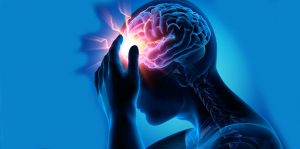
In FMRIs done with TMS, transsynaptic effects via cortical region are found to cause an increase in activation of even distant brain structures. In TMS treatment, magnetic fields penetrate to brain and creates new action potentials in application field. Scientific studies show that TMS has a similar effect with ECT in severe resistant depressions. Therefore, ECT which is an aggressive and invasive treatment method is being replaced with TMS.
Depression treatment
Depression treatments usually include combinations of self-help, talking therapies and medications. A therapy suggestion should be made based on the type of depression. You should gain as much information as possible about depression. It is important that you should understand the symptoms of depression and learn whether they have medical causes or not. (5)
Finding an effective combination of therapy methods can take some time. You may make some little changes in your lifestyle, and in the meantime, you may use antidepressants suggested by your doctor. You may start with healthy nutrition, walking or participating some activities rather than using medications in the first place.
Psychotherapy for depression treatment
Psychotherapy in depression treatment aims to make individuals get rid of negative thoughts and continue to their lives in a more active way. Therefore, people suffering from depression receive psychotherapy for a healthy and effective treatment. A suitable form of therapy should be determined for the patient. For mild and moderate depressions, talking therapies conducted with a psychologist help client. (6)
Psychologists listen to clients about their perspective about life and self, and their evaluations about life events; then, lead them to cope with depression with effective solution methods. These interviews usually produce good results.
What is psychotherapy and how long does it take?
Psychotherapy is the professional help that individuals receive for their problems. It includes talking about problem and solving them via this way. It provides individuals with a recognition of mental state, thoughts and emotions. Psychotherapy investigates individuals’ thoughts, emotions, attitudes and behaviors from a cognitive perspective. It is a reliable method and it is done by educated specialists.
Therapist’s job is to make clients open themselves comfortably, and ask them questions and thus, lead them to solutions. With the help of psychotherapy, you can become aware of your problems deeply, and learn how to solve them.
Each psychotherapy session has a determined duration; when this duration reaches to end, talking continues in the next session. However, apart from this duration, psychotherapy has mostly not a limited number of weeks or months.
Therapist can extend the therapy if client needs; or when client wants to end the therapy, with the therapist’s suggestions, they can end the therapy together. Moreover, frequent sessions may be replaced by less frequent ones by time.
What are the goals of psychotherapy?
- Reducing or removing causes and symptoms of depression
- Being free from emotional complexity and reaching to emotional relaxation
- Changes in behaviors and attitudes
- Examining relationships and life style
- Being aware of unhealthy conditions and trying to recover them
- Gaining psychological support and source
- Developing effective methods to cope with troubles
- Being able to decide in a healthy manner
For the individuals who are suffering from depression for a long time and cannot find a solution, medications are used in addition to talking therapies. Use of medications is done according to the prescriptions of doctor, and this provides individuals with a controlled and healthier therapy process. Talking therapies and medications can be used together.
Medications used for depression
Medications are usually used for treatment of depressions which are moderate or severe, occur frequently, or continue for a long term. They do not create happiness, they are useful only to reduce depression symptoms. For individuals with severe depression, medications are necessary to prevent suicidal thoughts. Severe depressions require inpatient treatment, too. (7)
Patients are treated with medications during psychotherapy. There are more than one type of antidepressants that doctors can prescribe. It should be the doctor to decide which medication is more suitable for the patient, not the patients themselves. Therefore, individuals should not try to have medications from the pharmacies without a prescription.
Depression medications
- SSRIs (Selective serotonin reuptake inhibitors): A group of antidepressants which include citalopram, sertraline, paroxetine, fluoxetine and fluvoxamine. SSRIs are used in treatment of obsessive-compulsive disorder, social phobias, panic disorder, and many depression type. Its security category for pregnancy is C. SSRIs should be taken with the recommendation of doctor and patients should be aware of their benefits and side effects.
- MAO inhibitors (Monoamine oxidase inhibitors): A group of antidepressants which have strong effects and prescribed by doctors. They are effective on patients with atypical depression –observed with anxiety disorder and panic attacks- and hypochondriasis.
- Tetracyclic and tricyclic antidepressants: These medications (Anafranil, Laroxyl, Tofranil) are an old group of medications. Currently, they are less used compared to past. Weight gain, dryness of mouth, manic shifts and sleepiness are some side effects of these medications.
- SNRI (Serotonin norepinephrine reuptake inhibitors): A different group of antidepressants which include Cymbalta and Effexor. They have less side effects than tricyclic antidepressants.
Antidepressant Side Effects
Since antidepressants do not affect body or mood as soon as pain killers, patient should take them with a prescription and in the right dose for a good outcome. On the other hand, all antidepressants have side effects. Tetracyclic and tricyclic antidepressants have more side effects than other groups of antidepressants. Side effects of this group are:
- Autonomic effects: These effects are palpitations, hypertension and sweating.
- Neurological side effects: Tremor on tongue and upper extremities, ataxia, paresthesia and obstacles in talking can be observed. Moreover, due to SSS stimulation, hyperactivity, agitation, sleeplessness, manic fulminant and irritable effects can occur.
- Hematological and allergic effects: Antidepressants rarely produce hematological and allergic effects. They may cause leukocytosis (more leucocyte in blood than normal), leucopenia (less blood cells than normal), and agranulocytosis (reducing number of white blood cell). These effects occur in between 4th and 8th weeks.
- Anticholinergic effects: These effects are observed frequently and contain urinary retention, dryness of mouth, visual blurriness and constipation. They often occur, but in 2 weeks, individuals develop tolerance.
- Other side effects: They include nausea, vomiting and elevated liver enzymes
- SSRIs do not interact with Muscarinic, adrenergic, receptor and histaminergic. Therefore, they have much less side effects than tetracyclic and tricyclic. Usually, nausea, diarrhea and sleeplessness are observed as side effects.
Herbal remedies for depression
For depression treatment, body, nervous system and mind need to relax. Plants have a natural potential to make this happen. Medicinal plants should be used as natural treatment methods. The four important medicinal plants to use in depression treatment are:
- Licorice: Licorice prevents the release of cortisol hormone; thus, it reduces stress. With its antidepressant effect; it relaxes body, diminishes tiredness and angry mood which trigger the depression. Also, it has positive effects on nervous system.
- Chamomile: It is effective to eliminate sleep disturbances and anxiety problems. Sedative effect of chamomiles is known and used for decades to fight depression. It relaxes the nervous system and muscles. Since it has not a serious side effect, it can be safely recommended to individuals with depression.
- Melissa (Lemon balm): Another medicinal plant which is used to reduce stress and relax the body is melissa, in other words, lemon balm. It is useful for reduction of tense mood, increasing concentration and relaxation of body. Also, it helps reducing and treating nausea, headaches, problems about digestion and anxiety. It can be received from herbal stores, brewed at home and used in tea form.
- Tipton’s weed: This plant grows in nature by itself. It consists chemicals as hyperforin and hypericin. Tipton’s weed is used to reduce anxiety and cope with depression. It can be used in tea form; however, it should not be used with antidepressants since it can decline the effectiveness of medications and increase serotonin level too much.
Recommendations for depression treatment
Since depression has symptoms like pessimism, negative thoughts, tiredness and unwillingness; treatment is based on changing life style and thoughts. Treatment aims to make individual continue to their lives in an active manner. Therefore, there are some suggestions of small changes that should be done before use of medication. (8)
Have a healthy nutrition
The first step for a healthy mind and body is to have a healthy nutrition. You should choose carefully what to eat in order to feel good and have a healthy body. Have your breakfast every day, include all food groups in your diet, and avoid convenience foods. By doing these, you will not have problems about your weight, and you will feel good. In addition to them, sometimes you may treat yourself with chocolate.
Sleep regularly
You should sleep regularly so that you can have a healthier job, education and family life. Sleeping efficiently makes you more productive. Sleep deprivation causes tiredness, weakness and problems with perceptions. In order to avoid them, sleep at a predetermined time every night, and wake up in the morning as ready for a new day.
Do physical exercises or hike
Physical exercises are proved to prevent depression and treat the present depression. Exercises increase the release of endorphin which makes people feel better. Regular physical exercises serve brain to work effectively. Even small hiking activities would be useful.
Avoid stress, and practice yoga if necessary
Stress is one of the causes of depression. You should avoid stress in family life and job or school environment. You may have healthy boundaries in work life, and you may ask family members for help in order to solve family issues.
Have responsibilities, and do not neglect your daily routine
Social responsibility projects, charities and foundations have an important place in treatment plan. Having a societal responsibility provides most individuals with an awareness, and that makes them feel better. Therefore, individuals are recommended to take responsibilities and perform works for such aims.
Challenge your negative thoughts
Stop living with a mass of negative thoughts about your clothes, hair, what you eat or what people say to you. Be free from their negative effects because you will feel better when you do so. Do not be pessimistic about future; rather, try to have hope and make an effort for yourself.
Bring novelty to your life
If you think that you have a monotone and boring life, you better should bring novelty to it. You may develop your work, go on a holiday, try different tastes, or do some simple activities as going to cinema. Changing your way of dressing or hair style may help you feel better. Moreover, having new friends would be good for you in terms of novelty.
Have time for having fun
Having fun is the most enjoyable and active part of the life. Fun times increase serotonin and help you feel happier. Choose some fun activities for yourself and allocate your weekends for those activities. You may have time with people you love, you may play games or you may go on a holiday.
Have healthy boundaries in your relationships
One of the most obvious patterns in depression is unhealthy relationships with others. Your relationship should be in healthier boundaries in work life. Sharing time with always the same people would produce a sense of monotonousness. You should define healthy boundaries to have healthy relationships. While doing that, be careful about that you are not creating large gaps between you and others. For more: >>> Depression

